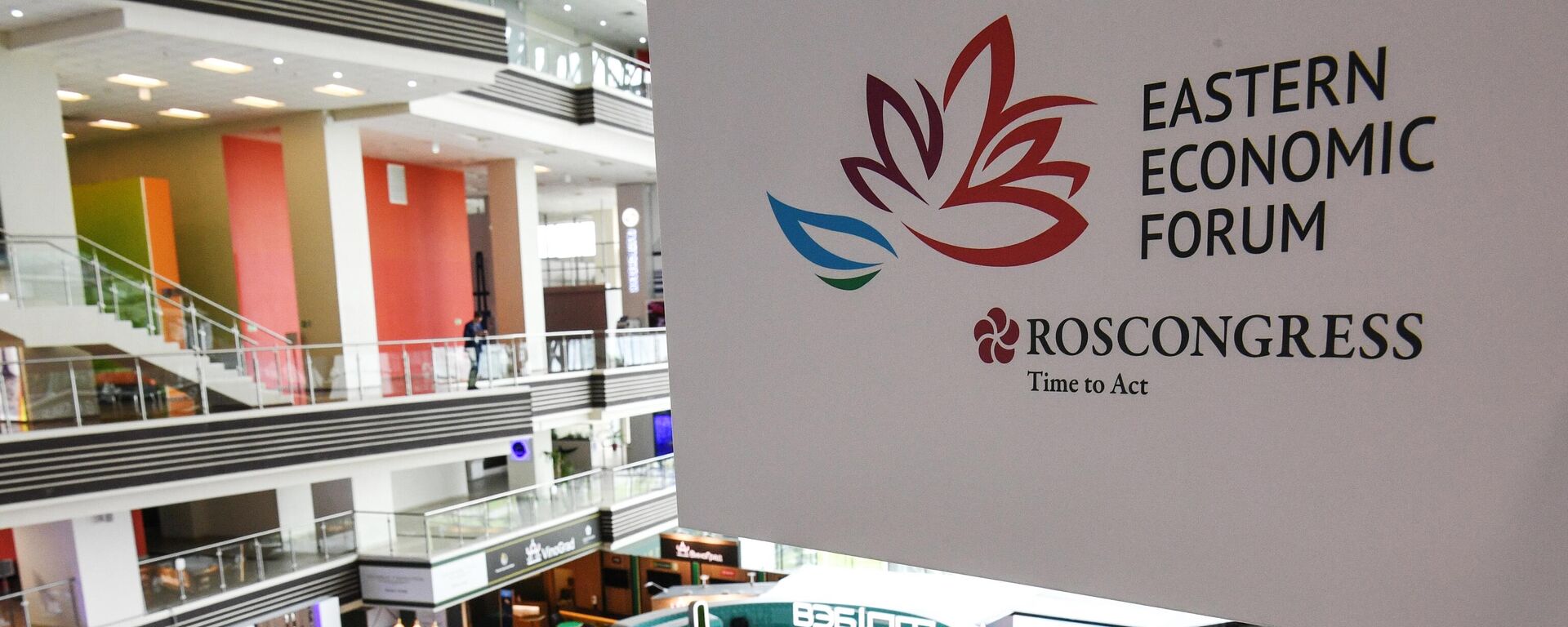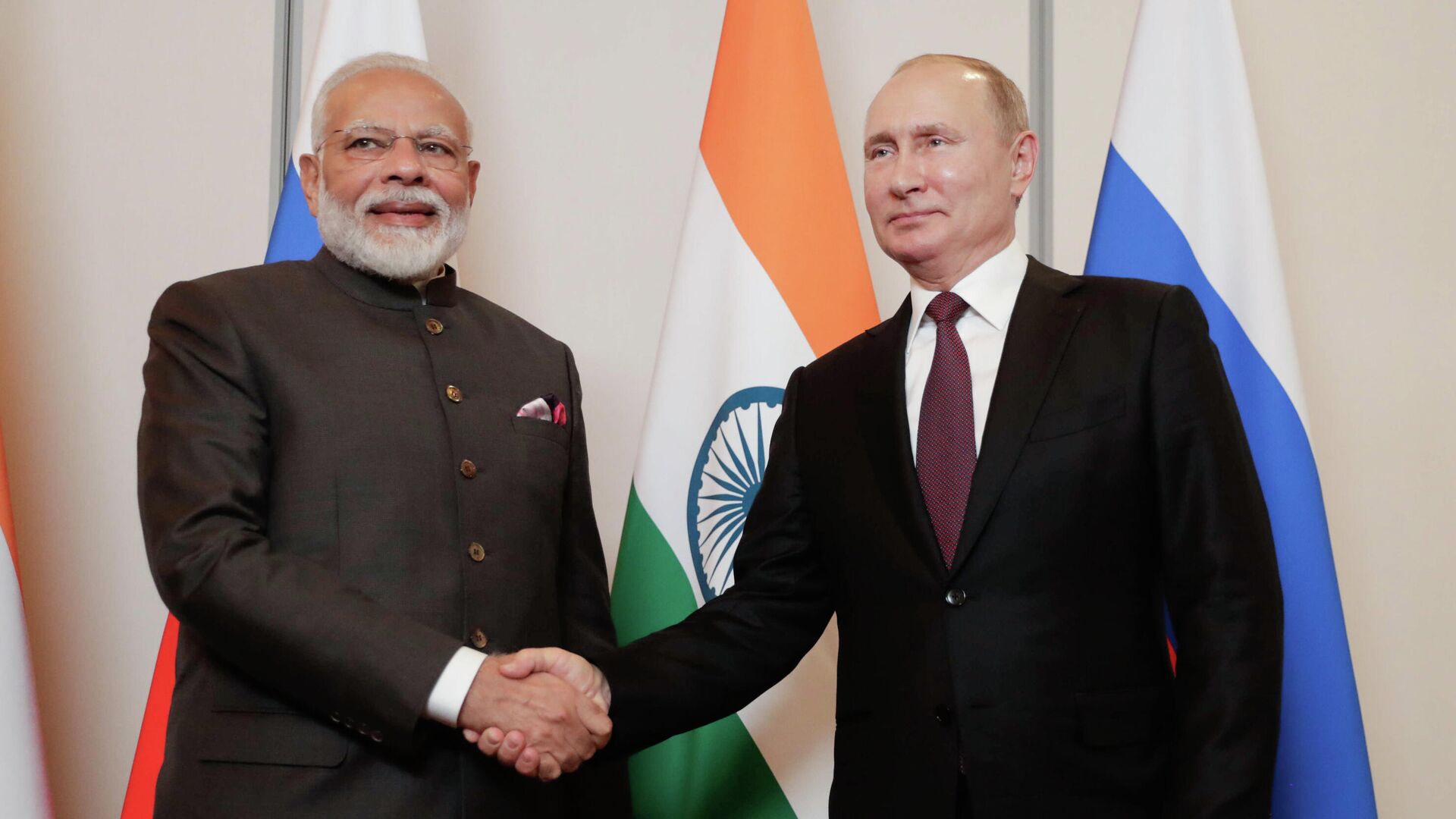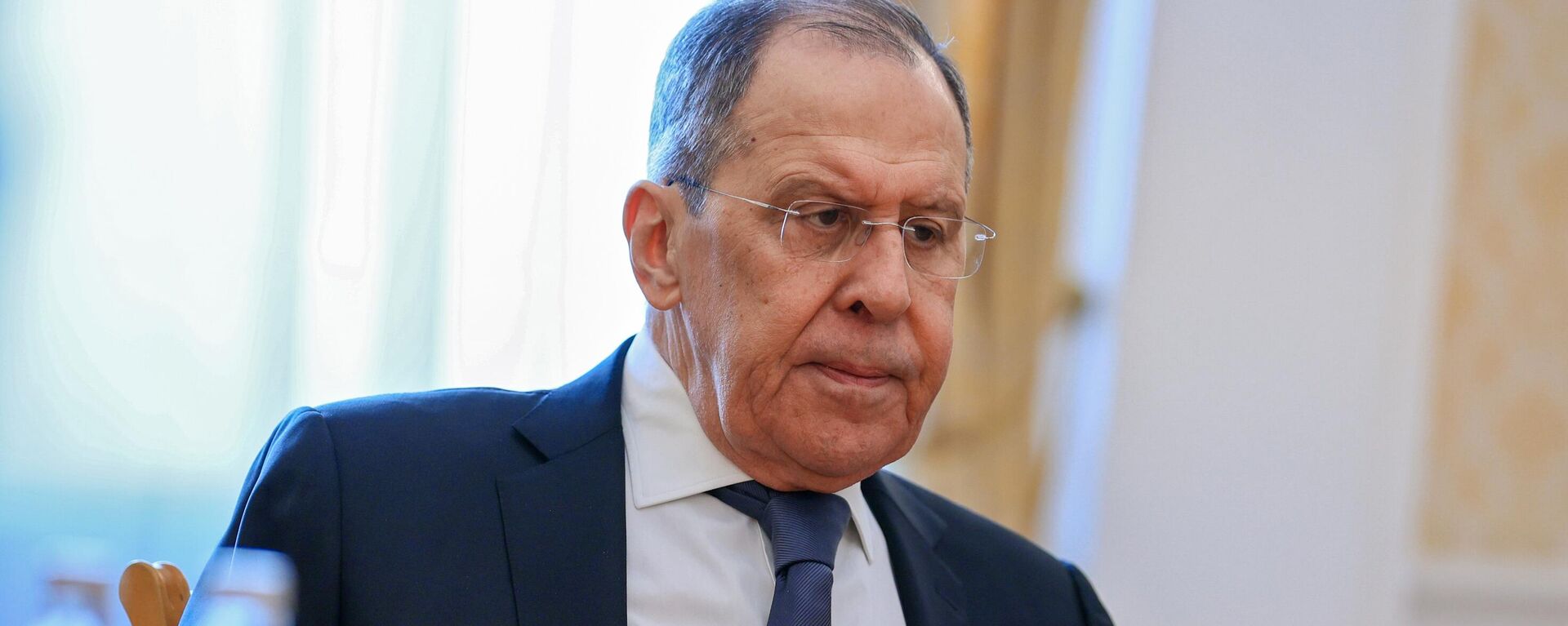https://sputnikglobe.com/20220905/russia-india-relations-are-time-tested-indian-historian-says-1100378636.html
'Russia-India Relations Are Time-Tested', Indian Historian Says
'Russia-India Relations Are Time-Tested', Indian Historian Says
Sputnik International
Ajay Kumar Dubey, a professor of international relations at India’s premier Jawaharlal Nehru University (JNU), is part of the Indian delegation participating... 05.09.2022, Sputnik International
2022-09-05T10:34+0000
2022-09-05T10:34+0000
2022-10-19T20:56+0000
russia
us
pakistan
eastern economic forum 2022
ukraine
https://cdn1.img.sputnikglobe.com/img/07e5/0c/06/1091282770_0:0:2960:1665_1920x0_80_0_0_d4de7e7345b9a8f32855d5b0c76d07fb.jpg
Dubey has been invited as a speaker at the EEF session ‘Teaching History in Eastern Countries’. In an interview with Sputnik, Dubey talks about the historic parallels between the events in the past and the current geopolitical situation in the world, particularly the Ukraine crisis.Sputnik: You're taking part in a session on teaching history in the eastern countries. What are the distinctive features that are typical for teaching history in your home country of India?Ajay Kumar Dubey: The distinctive feature [arises from the fact] that India is a very diverse country with 28 different states.The education, including history as part of that, are not taught in any uniform way. There are contrasts between various schools of history, writing; different categories of history textbooks. And these variations are largely of six categories, with the Marxist and Hindu versions being the most prominent of the lot.So, these variations are reflected in the teaching of history at the school level, depending on who is in power at the national level (federal government) or who is in power at the provincial level.Sputnik: In many European countries, especially in Eastern Europe at the moment, we see history being rewritten, with the neo-Nazi ideology receiving approval in countries like Ukraine. How important is it to remember the true causes of World War II? How should we pass on this knowledge to present-day students?Dubey: Yeah, it's very important to learn from history because history [should] be always written with a purpose -- to learn from it and to move forward with the current challenges and current hope[s] and aspiration[s].It's very important that what mistakes were made by the Nazis, by the very conservative regimes, [the same] is happening even on the border [between] Russia and Ukraine. We have learned so much from our experience, our history with Pakistan, which was armed by United States in the 70s and 80s and made a constant enemy of India. Where India wants to move forward in the world, it's always dragged about by its own labor.So, what we could not do to address [the issues] initially, Russia is doing [now]. So this kind of historical understanding, this kind of setting of history and knowledge helps each other, and the Indian-Russian friendship, therefore, moves forward [with this] understanding.Sputnik: Russia has a big Indian diaspora with Indian festivals being celebrated in Moscow annually. Why do people from your country choose to move to such a cold, faraway location? What makes Russia an attractive destination for Indians?Dubey: The migration of people across the world [in general]. There are more than 400 million people who [are migrating], and this [significant scale of] migration is not just because of one region or because of one country.The migration of people from one part of the world to another depends on various factors, which include better opportunities and a chance to live a better life. With more than 35 million Indians living in different countries, they are the single largest diaspora of the modern period after the Chinese people.And the migration [of Indians] has been of different types. There has been a migration of highly skilled Indians to other countries since Independence [ in 1947]. Then, in the Gulf, we have [mostly] low-skilled Indian workers, as compared to high-skilled and super-skilled Indian workers in the United States and Europe. In Russia, we mostly have the presence of good Indian businessmen.The migration patterns of Indians also depend upon the kind of relations and exchanges India has had with the recipient countries. Indians have not moved and shared their skill, but wherever they have gone they have contributed to their host country and have become a strong pillar of promoting bilateral relations.Sputnik: India is one of the countries that chose not to break economic ties with Russia over the situation in Ukraine. Is there historical background underpinning this decision? And if so, what are the events of the past which helped Moscow and Delhi to stay close even in these difficult times?Dubey: I think it is a difficult time for Russia, but Russia has stood with India through far more difficult times for New Delhi. Russia stood with India after [it gained] Independence [and] wanted to move away from the West by developing its own economy and charting its own internal foreign policy.Russia played a very strong role in strengthening our public sector and other core sectors of the economy. Everyone knows that kind of friendship Russia displayed when it stood by India’s side during the 1971 [Bangladesh Liberation War], when the US was against us and sent its 7th Fleet vessels to the Indian Ocean.We haven’t forgotten how Russia gave us protection back then, in spite of India’s close relations with the United States now.
https://sputnikglobe.com/20220904/eastern-economic-forum-russias-major-business-event-explained-1100357531.html
https://sputnikglobe.com/20220517/china-india-other-rising-powers-wont-accept-west-imposed-status-of-obedient-mutes-lavrov-says-1095568624.html
russia
pakistan
ukraine
Sputnik International
feedback@sputniknews.com
+74956456601
MIA „Rossiya Segodnya“
2022
Sputnik International
feedback@sputniknews.com
+74956456601
MIA „Rossiya Segodnya“
News
en_EN
Sputnik International
feedback@sputniknews.com
+74956456601
MIA „Rossiya Segodnya“
Sputnik International
feedback@sputniknews.com
+74956456601
MIA „Rossiya Segodnya“
russia, us, pakistan, ukraine
russia, us, pakistan, ukraine
'Russia-India Relations Are Time-Tested', Indian Historian Says
10:34 GMT 05.09.2022 (Updated: 20:56 GMT 19.10.2022) Exclusive
Ajay Kumar Dubey, a professor of international relations at India’s premier Jawaharlal Nehru University (JNU), is part of the Indian delegation participating in the 7th edition of the Eastern Economic Forum (EEF) in the Russian Pacific port city of Vladivostok on September 5-8.
Dubey has been invited as a speaker at the EEF session ‘Teaching History in Eastern Countries’. In an interview with Sputnik, Dubey talks about the historic parallels between the events in the past and the current geopolitical situation in the world, particularly the Ukraine crisis.
Sputnik: You're taking part in a session on teaching history in the eastern countries. What are the distinctive features that are typical for teaching history in your home country of India?
Ajay Kumar Dubey: The distinctive feature [arises from the fact] that India is a very diverse country with 28 different states.
The education, including history as part of that, are not taught in any uniform way. There are contrasts between various schools of history, writing; different categories of history textbooks. And these variations are largely of six categories, with the Marxist and Hindu versions being the most prominent of the lot.
So, these variations are reflected in the teaching of history at the school level, depending on who is in power at the national level (federal government) or who is in power at the provincial level.

4 September 2022, 12:42 GMT
Sputnik: In many European countries, especially in Eastern Europe at the moment, we see history being rewritten, with the neo-Nazi ideology receiving approval in countries like Ukraine. How important is it to remember the true causes of World War II? How should we pass on this knowledge to present-day students?
Dubey: Yeah, it's very important to learn from history because history [should] be always written with a purpose -- to learn from it and to move forward with the current challenges and current hope[s] and aspiration[s].
It's very important that what mistakes were made by the Nazis, by the very conservative regimes, [the same] is happening even on the border [between] Russia and Ukraine. We have learned so much from our experience, our history with Pakistan, which was armed by United States in the 70s and 80s and made a constant enemy of India. Where India wants to move forward in the world, it's always dragged about by its own labor.
So, what we could not do to address [the issues] initially, Russia is doing [now]. So this kind of historical understanding, this kind of setting of history and knowledge helps each other, and the Indian-Russian friendship, therefore, moves forward [with this] understanding.
Sputnik: Russia has a big Indian diaspora with Indian festivals being celebrated in Moscow annually. Why do people from your country choose to move to such a cold, faraway location? What makes Russia an attractive destination for Indians?
Dubey: The migration of people across the world [in general]. There are more than 400 million people who [are migrating], and this [significant scale of] migration is not just because of one region or because of one country.
The migration of people from one part of the world to another depends on various factors, which include better opportunities and a chance to live a better life. With more than 35 million Indians living in different countries, they are the single largest diaspora of the modern period after the Chinese people.
And the migration [of Indians] has been of different types. There has been a migration of highly skilled Indians to other countries since Independence [ in 1947]. Then, in the Gulf, we have [mostly] low-skilled Indian workers, as compared to high-skilled and super-skilled Indian workers in the United States and Europe. In Russia, we mostly have the presence of good Indian businessmen.
The migration patterns of Indians also depend upon the kind of relations and exchanges India has had with the recipient countries. Indians have not moved and shared their skill, but wherever they have gone they have contributed to their host country and have become a strong pillar of promoting bilateral relations.
Sputnik: India is one of the countries that chose not to break economic ties with Russia over the situation in Ukraine. Is there historical background underpinning this decision? And if so, what are the events of the past which helped Moscow and Delhi to stay close even in these difficult times?
Dubey: I think it is a difficult time for Russia, but Russia has stood with India through far more difficult times for New Delhi. Russia stood with India after [it gained] Independence [and] wanted to move away from the West by developing its own economy and charting its own internal foreign policy.
Russia played a very strong role in strengthening our public sector and other core sectors of the economy. Everyone knows that kind of friendship Russia displayed when it stood by India’s side during the 1971 [Bangladesh Liberation War], when the US was against us and sent its 7th Fleet vessels to the Indian Ocean.
We haven’t forgotten how Russia gave us protection back then, in spite of India’s close relations with the United States now.
[Speaking of Ukraine], it is an issue which you understand by understanding [India’s] own border with Pakistan. Irrespective of that, the India-Russia relations are time-tested. [These] ties are something that [doesn't depend] just on one incident or another, but something that both countries have planned together in order to cooperate at the international level and support each other.






